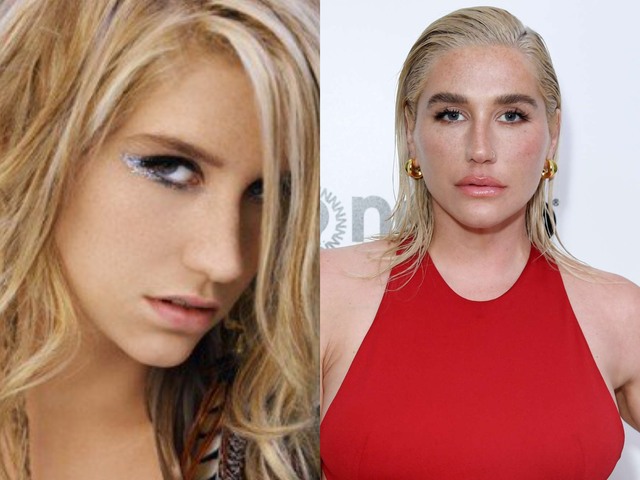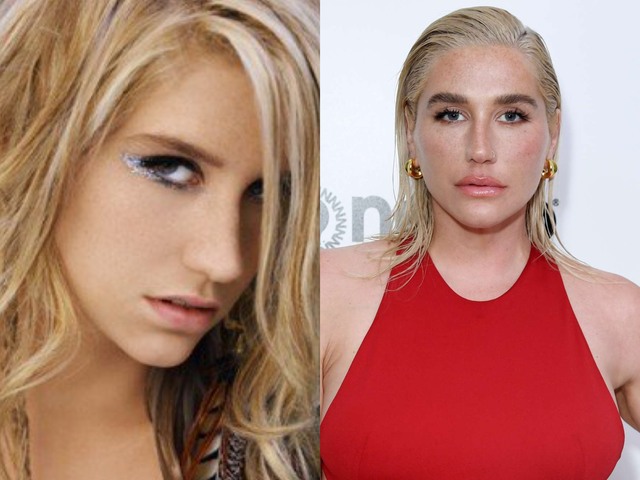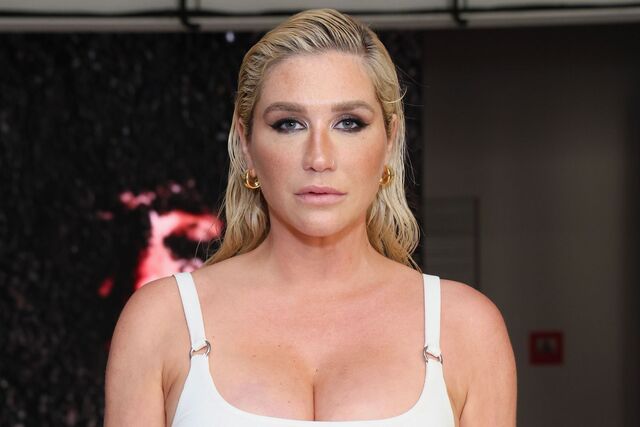
Early Life
Kesha Rose Sebert, known simply as Kesha, was born on March 1, 1987, in Los Angeles, California. Raised by her mother, Pebe Sebert, a country songwriter who had penned hits for iconic artists like Dolly Parton, Kesha grew up in a musical household. Although her family struggled financially, relying on welfare and food stamps, Kesha’s upbringing in a creative environment sparked her passion for music at a very early age.
At the age of four, Kesha’s family moved to Nashville, Tennessee, where her mother’s songwriting career began to flourish. Surrounded by country music legends like Johnny Cash and Patsy Cline, Kesha’s love for music deepened. Her mother supported her musical aspirations by allowing her to spend time in recording studios, learning the craft of songwriting and performance. By her teenage years, Kesha had already made the life-changing decision to pursue music as her lifelong career.

The Road to Stardom
At 17, Kesha made the bold decision to leave high school and move to Los Angeles to chase her music dreams. She adopted her stage name “Kesha” and began collaborating with the legendary music producer Dr. Luke, who had worked with stars like Katy Perry and Kelly Clarkson. Dr. Luke quickly recognized Kesha’s potential, praising her unique voice and vibrant personality.
Her journey to stardom was far from conventional. In a now-famous anecdote, Kesha once paid a gardener to sneak into music icon Prince’s home and leave a demo tape, hoping it would catch his attention. While this unconventional tactic did not result in a collaboration with Prince, it was a bold testament to her unrelenting ambition and determination.

Breakthrough and Initial Success
Kesha’s breakthrough came in 2009 when she provided uncredited vocals for Flo Rida’s smash hit “Right Round.” Though she didn’t receive credit or payment for the track, it opened the door for her career in the music industry. Later that year, Kesha signed with RCA Records and released her debut single “Tik Tok,” which became an international sensation.
The song quickly soared to the top of the charts, making Kesha a household name. Her debut album, *Animal*, was released in January 2010 and further solidified her status as a pop superstar. The album featured chart-topping singles like “Your Love Is My Drug” and “Blah Blah Blah,” and showcased Kesha’s raw, playful, and unapologetically wild style. Despite facing some criticism regarding her party-girl image and the lyrics of her songs, Kesha stood firm, defending her music as a reflection of her authentic self and unapologetic creativity.

Musical Evolution
In 2012, Kesha released her sophomore album, *Warrior*, which marked a significant progression in her musical style. The album included the hit single “Die Young,” which blended Kesha’s signature electro-pop sound with elements of rock and indie music. Accompanying the album was an extended play titled *Deconstructed*, which presented stripped-down versions of her songs, showcasing her vocal abilities and emotional depth.
As Kesha’s career progressed, her music evolved to reflect her personal experiences and growth as an artist. While her earlier tracks celebrated carefree partying and the joys of living in the moment, her later releases took on deeper themes of empowerment, self-discovery, and resilience, reflecting a more mature perspective on life and love.

Personal Challenges and Legal Battles
Despite her early success, Kesha’s career took a dramatic turn in 2014 when she checked into rehab to treat an eating disorder. During this challenging time, Kesha also filed a lawsuit against Dr. Luke, accusing him of years of sexual assault, harassment, and emotional abuse. The legal battle became highly publicized, attracting significant media attention and drawing support from fellow artists and fans.
Stars such as Lady Gaga, Adele, and Taylor Swift voiced their support for Kesha, with Swift even donating $250,000 to help cover her legal expenses. Despite the overwhelming public support, Kesha faced setbacks in court, including a 2016 ruling that denied her request to be released from her contract with Dr. Luke’s record label. The legal fight was long and exhausting, but Kesha’s resilience throughout this time remained unwavering.

Artistic and Emotional Growth
Amid the turmoil of her legal battles, Kesha turned to music as a source of healing and empowerment. In 2017, she released *Rainbow*, her third studio album. The album’s standout track, “Praying,” was widely interpreted as Kesha’s emotional response to her experiences with Dr. Luke, and it showcased a raw vulnerability and vocal range that resonated with listeners.
*Rainbow* marked a pivotal moment in Kesha’s career. Unlike her previous albums, which largely focused on party anthems, *Rainbow* explored more introspective and personal themes of inner strength, recovery, and resilience. The album was a critical and commercial success, earning Kesha her first Grammy nominations and reaffirming her place as one of pop music’s most influential artists.

Kesha’s Legacy and Influence
Kesha’s impact on pop music extends far beyond her chart-topping hits. She has become an icon for a generation of fans who admire her authenticity, confidence, and her message of self-empowerment. Her willingness to confront personal struggles in her music, and to embrace vulnerability, has set her apart in an industry that often values image over substance.
Additionally, Kesha has become a strong advocate for artists’ rights and a vocal critic of the industry’s treatment of women. Through her activism and advocacy, Kesha has proven that she is not only an artist but also a powerful voice for social change. Her ability to overcome personal and professional challenges has made her an inspiring figure, not just in music, but in broader cultural conversations about power, control, and healing.
Conclusion
Kesha’s journey, from her humble beginnings in Nashville to becoming a global pop sensation, is a story of resilience, growth, and transformation. Despite facing numerous obstacles—personal, professional, and legal—Kesha has proven that strength can be found in vulnerability, and that adversity can fuel artistic expression. Her legacy, both as an artist and an advocate, will continue to inspire future generations of fans, proving that it is possible to turn struggles into strength and to reclaim one’s narrative in the face of adversity.



